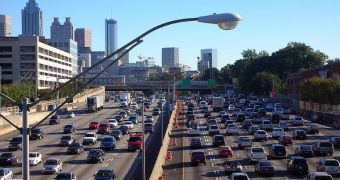The state of California is about to make history in a few weeks, when it will become the first ever to introduce the Low-Carbon Fuel Standard (LCFS) all over its territory. Starting January 1, 2010, the state will have the necessary means to force all of the fuel suppliers on its territory to abide by the new laws, in spite of the opposing interests that the oil companies have in this matter. Over the next ten years, plans are to reduce the “life-cycle carbon intensity” by more than ten percent, a fairly steep cut, according to analysts. The laws cover cars, trucks, as well as other vehicles that function on fossil fuels.
Technology Review informs that this type of decision will also have another positive effect, in addition to safeguarding the environment. Experts believe that the taxes that will be placed on conventional fuels will also even the odds for those seeking to make alternative fuels a mainstream commodity. Low-carbon alternatives will therefore become more appealing to prospective owners, looking to buy a new car, but unwilling to pay large sums of money for gas and related taxes. Also in 2010, the state will establish the carbon-intensity baseline for both diesel and gasoline fuels that are sold in California.
For each coming year after that, starting 2011, the baseline will be made lower and lower, which will decrease pollution, increase revenues, protect the environment, and promote cleaner alternatives. The only way for fuel producers to maintain their sales would be to blend cellulosic biofuels – or other low-carbon fuels – into the products they are selling. Another option would be to purchase carbon credits from companies that beat the standards, and thus buy themselves an extra year of operations.
“Those fuels with lower overall emissions will be incentivized, and those with higher emissions will be discouraged,” the University of California in Davis (UCD) Director of the Institute for Transportation Studies, Daniel Sperling, explains. The expert is also the “architect” of the LCFS. In the carbon-trading scheme, companies that stay below their alloted baseline will be able to sell their remaining credits on the market. In this way, they will continue to grow, and become cleaner, whereas “dirtier” companies will be constantly losing money.
“Because of the very low emissions per mile traveled for electric vehicles versus all liquid fuels, the LCFS could strongly advance electrified transport,” the University of California in Berkeley (UCB) Director of the Institute of the Environment, Dan Kammen, adds. He is another expert that contributed to the development of the LCFS.

 14 DAY TRIAL //
14 DAY TRIAL //